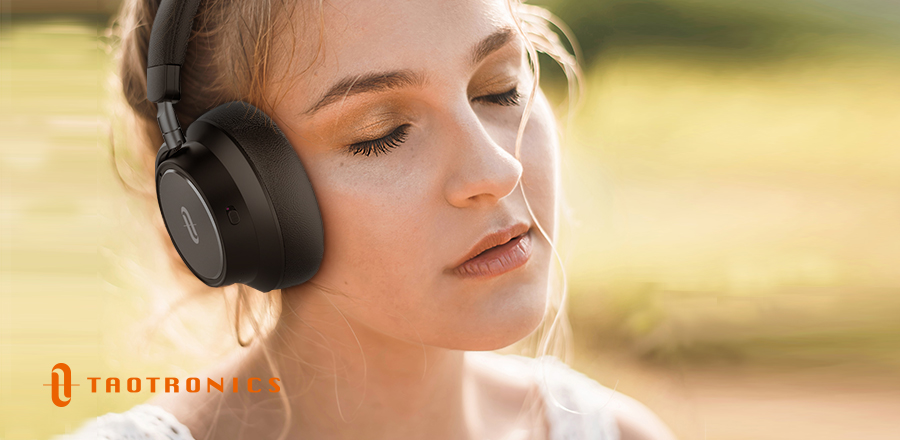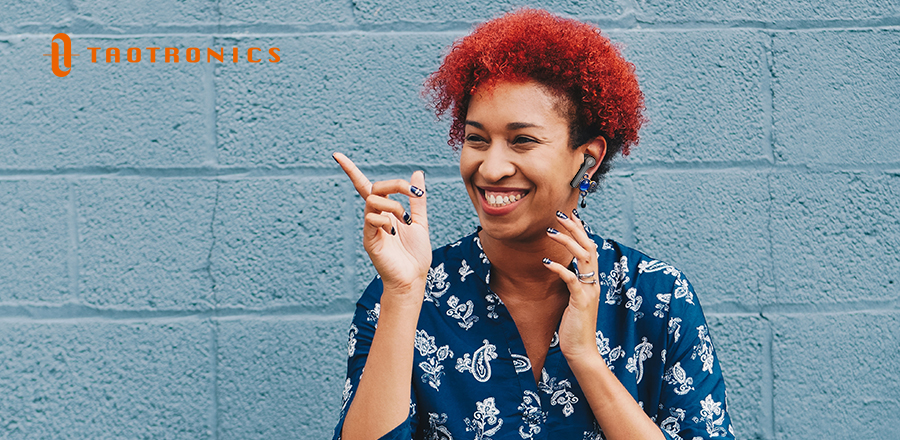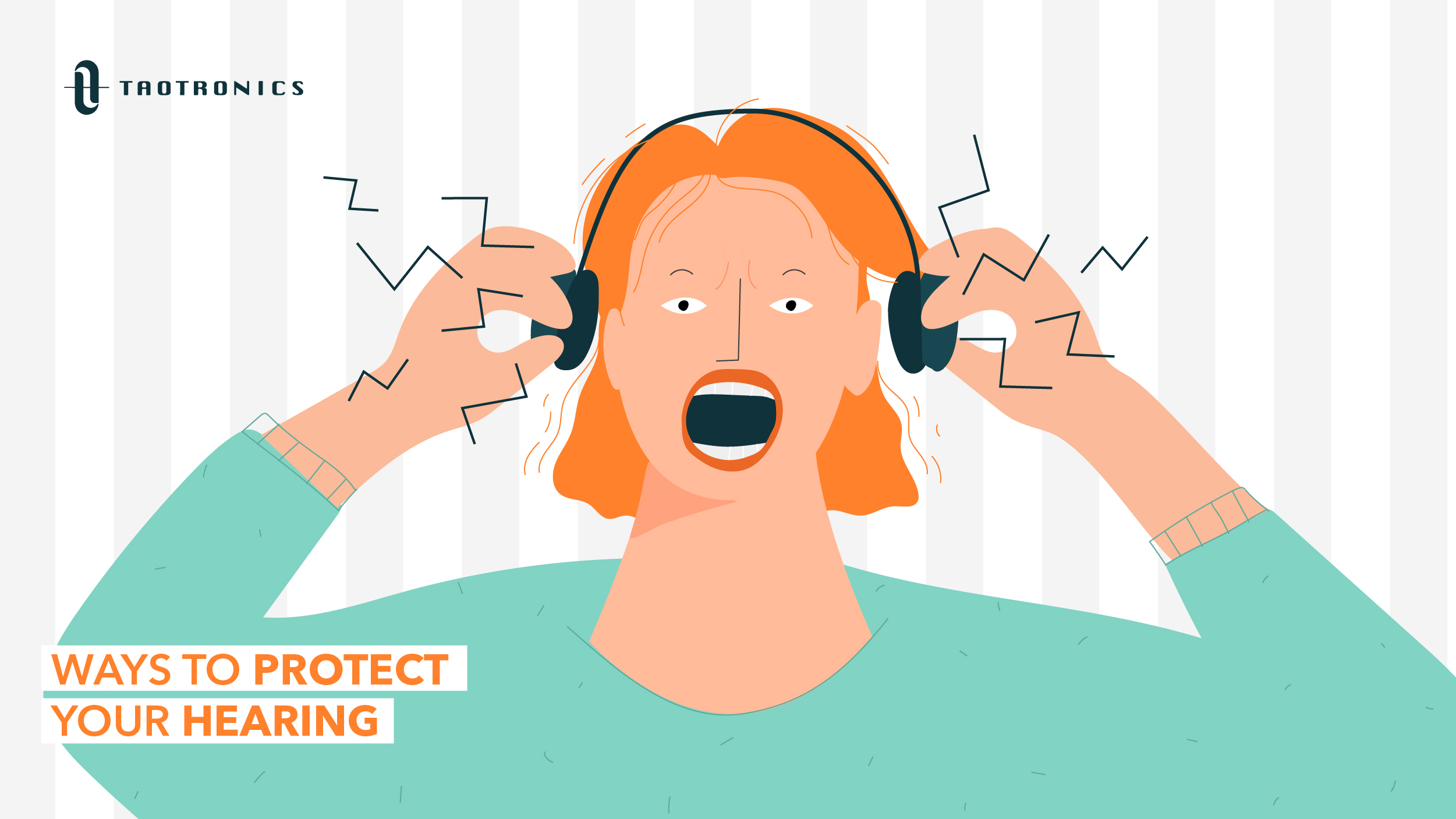Do you feel like you’re experiencing hearing loss? It could be that your headphones volume is too loud. If the topic of loud music via headphones causing hearing loss interests you, you’ve come to the right place! Read on for information about how to check if your headphones audio is too loud, and ways to reduce the volume.
Studies by the World Health Organisation have shown that there are an increasing amount of people who are suffering from hearing loss. An incredible 1.1 billion people between the ages of 18 to 44 are at risk of hearing loss from recreational settings. Could this be you, or someone you love?
Can you hear a ringing, roaring, hissing or buzzing, or have the feeling that your ear is plugged? Do you love listening to your music loud? Or find that you’re having to listen to it at an increasingly higher volume to be able to hear it properly?
You’ll want to read on, because this isn’t simply a case of accepting a decline in hearing. It’s also not necessarily a case of throwing out your old headphones.
Quick Jump:
What are the Risks of Having Your Headphones Volume Too Loud?
How Loud is too Loud?
6 Ways to Check if Your Headphones Volume is Too Loud
Useful Methods to Ensure Your Headphones Audio Isn’t Too Loud
Conclusion
What are the Risks of Having Your Headphones Volume Too Loud?
To break it down: if you listen to music for too loud, too long, it has the same affect as any other exposure to loud noise. You can damage your hearing.
According to the NHS, early symptoms of hearing loss can include:
- Finding it difficult to hear others properly, or misunderstanding what’s said. This is especially true in noisy environments.
- Regularly needing people to repeat themselves.
- Having to listen to music or watch TV at a higher volume than others
- Struggling to hear on a phone call
- Finding it hard to keep up with a conversation
It’s something you want to keep an eye (or ear!) on, because significant damage can lead to permenant hearing loss. This type of hearing loss is irreversable. It occurs when a part of the inner ear, the cochlea, is damaged. The cochlea has small hair cells that send messages to your brain. Loud noises can disrupt and destroy these and prevent them from working effectively.
How Loud is too Loud?
It’s widely recommended that you don’t listen to noise above 85 decibles for over 15 minutes. So, if you are listening to music at around 100 decibels, approximately the level of noise of a concert or an electric drill, restrict your usage to within 15 mins.
Any sound between 60 and 80 decibels shouldn’t be listened to for more than an hour if it can be avoided. If you’re listening to such high volumes at work, make sure you have proper protection. You can read more about CDC sound guidelines here.
6 Ways to Check if Your Headphones Volume is Too Loud

- Arms Length: Set your music to the volume you usually listen at. Play the music and hold your headphones at arms length. If you can still hear the music, then it’s too loud!
- Grab a Friend: Put your music at the usual level and see if a friend sat nearby or next to you can hear it. These top two test are possibly the quickest ways to establish if your headphones volume is too loud.
- Home Hearing Tests: You can take hearing tests like this to establish if you’ve been listening to your headphones audio is too loud!
- Look Out for Signs of Hearing Loss: Do you have a ringing in your ears, or do they feel muffled or ‘full’? If you suffer from any of these symptoms you should get them checked out by a doctor; they might be signs of loud music from your headphones causing hearing loss.
- Use a Sound Meter: You can download apps on both Apple and Android phones to measure if your headphones volume is too loud.
- Check Yourself: Pay attention to your volume control and see whether you’re regularly listening to music at over 70%.
Useful Methods to Ensure Your Headphones Audio Isn’t Too Loud
1. Use Headphones or Earbuds Specially Made for Kids
If you’re reading this for your kids, this should be your first stop. If you aren’t, you might want to consider a pair of kids headphones (if they fit!) as they often include integrated volume control.
Also known as volume limiters, these will keep the headphones from reaching over 85 decibels. This means your child (…or yourself, if this is what you’re going for) won’t accidentally listen to music that is too loud. However, even these headphones can go louder than 85decibels if connected to a stropng amplifier; it’s best to connect to non-amped music playing devices to keep the listeners ears safe.
2. Use Volume Limit Controls
Under the settings menu of your Apple or Android, you can adjust the maximum volume you can listen to music at. This is really helpful if you think headphones volume is too loud! If you can’t find appropriate instructions below, there are apps that allow you to set maximum sound levels for your device.
Set Volume Limit (Apple):
- Go to Settings
- Select Music
- Find Volume Limit
- Select your ideal maximum volume (try not to go higher than 70%)
- If you’ve got kids then you can then set this as a restricted limit by going Settings –> General –> Restrictions –> Enable Restrictions
- Add a pin and then go to Allow Changes
- Once you’ve found Volume Limit, you can select ‘Don’t Allow Changes‘ and the volume limit will be locked.
Set Volume Limit (Samsung):
- Go to Settings
- Tap Sound, or Sounds & Notifications
- Find Volume and choose the 3-dots ‘more options’ button in the top right corner
- From here, you can turn on the Media Volume Limiter and choose your appropriate level (try not to go higher than 70%)
You can download apps or see if these instructions fit any other form of Android!
3. Use Noise Cancelling Headphones

A key means of reducing the volume and cutting out loud music via headphones and hearing loss is using noise cancelling headphones. This technology is particularly important for people who feel that their headphones audio is too loud.
Put simply, Active and Hybrid noise cancelling headphones reduce the need to up your volume because they cut out the background noise. It’s music on, world off!
Such technology works by picking up ambient noises via an audio processor and noise cancelling circuitry, which creates a noise cancelling wave that works to erase unwanted background noises. Far more effective than simple noise isolation tech, noise cancellation tech means you can hear your music with total clarity, without distractions. We’ve gone into this in more detail before, and make sure you look at these pretty incredible noise cancelling headphones.
4. Reduce Your Listening Time
Whilst this might seem obvious, it’s one surefire way to protect yourself from side effects if your headphone volume is too loud.
As we discussed earlier, you really shouldn’t listen to audio above 85 decibels for longer than 15 minutes at a time. You also shouldn’t listen at 80 decibels for over an hour at once. This doesn’t mean you can’t turn down the volume and listen for longer. Perhaps it’s necessary for your work to listen to loud audio; try to make sure that this doesn’t exceed the time limit. And make sure you give yourself a break inbetween listening sessions!
| Noise Source | Decibel Level (dB) | How long can you listen without protection? |
|---|---|---|
| Jet take off | 130 | 0 minutes |
| Ambulance siren | 109 | Less than 2 minutes |
| Personal music player at maximum volume | 106 | 3.75 minutes |
| Pop/Rock concert | 103 | 7.5 minutes |
| Riding a motorcycle | 97 | 30 minutes |
| Using an electric drill | 94 | 1 hour |
| Maximum recommended music levels | 80 | 1 hour |
More information and original table from hearsmart.org
5. Install an Equalizer
If you feel like your headphones audio is too loud, you might need to download an equalizer.
Equalizers help you adjust different audio frequencies, refining the sound you hear and so adjusting the volume. You can have different equalizer settings for different genres of music to truly tailor the volume of your music. Each song will sound better and you wont have to increase the decibles to immerse yourself.
Certain frequencies are louder than others to our ears, despite having the same or even more energy behind it. Our range is around 20-20,000 Hz, and the closer we approach or exceed these boundaries, the softer things sound. Compounded by the fact that our cars, rooms, and speakers are in various shapes, sizes, and configurations, the same note from the same instrument can sound completely different, let alone a whole song! That’s why ancient amphitheaters were designed with acoustic projections in mind, so voices could carry.
howtogeek
Your preferred music player might well come with an equalizer. If it doesn’t, it’s easy to get one! Follow this link for a list of the many great apps for Android you can download to adjust the frequencies.
Conclusion

If you’re worried about loud music from headphones causing hearing loss, there are a few simple steps you can take to reduce pressure on your eardrums. More than just turning down the volume, you can download an equalizer to tailor your music to ensure you’re listening to the best possible quality. You can also set volume limits so your headphone audio isn’t too loud.
If you’re looking for a new pair of headphones, you should prioritize noise cancellation technology. A modern must, headphones that include this tech are a great way to block out the background noise and get ‘me time’ as well as protecting your ears. The most accomplished headphones have Active or Hybrid versions of this technology; it will revolutionize the way you listen to music.
Check out the TaoTronics Noise Cancelling Headphones Range!
- Celebrate Labor Day: Discounts from TaoTronics - April 23, 2021
- How to Connect Bluetooth Headphones to Your Macbook Pro or iMac - April 9, 2021
- Headphone Earpads Full Guide: Replacements, Covers, and more! - March 26, 2021

Great delivery. Solid arguments. Keep up the good spirit.
I read your article a second time so I could take in all the information. I agree with many of your views. I enjoyed this.
It is really a nice and helpful piece of information. I am glad that you shared this useful info with us. Please keep us up to date like this. Thank you for sharing.